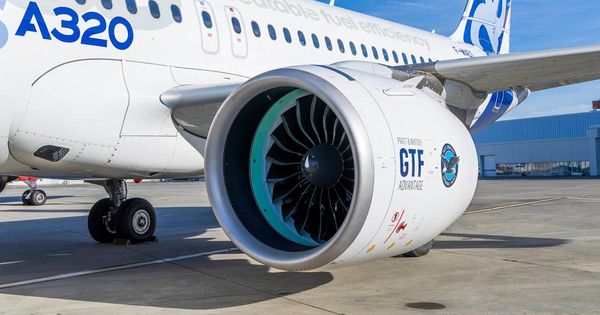This month is not looking good for Boeing as the U.S. Federal Aviation Administration(FAA) has launched a formal investigation into the B737 MAX 9 Series and Boeing's practices after an incident last week involving an Alaskan Airlines 737 MAX 9.

The FAA
On Saturday, the FAA grounded 171 Boeing 737 Max 9 airliners, due to concerns of similar panel safety issues. The discovery of loose bolts on multiple MAX jets, coupled with the Alaska Airlines incident where a fuselage panel blew out mid-air, has prompted lawmakers and regulators to scrutinize both Boeing and the Federal Aviation Administration (FAA).
The FAA said in a statement, "This incident should have never happened and it cannot happen again."
Boeing said in a statement, "We will cooperate fully and transparently with the FAA and the NTSB on their investigations,"
The agency is probing whether Boeing negligently compromised safety standards. This investigation delves into whether Boeing's production practices adhere to their approved design and deliver planes fit for safe operation a critical question considering the Max 8's past grounding due to fatal accidents. This investigation puts immense pressure on Boeing to maintain transparency and prioritize safety, with significant legal and reputational consequences hanging in the balance.

The Entirety of Boeing is Under Fire
While many are concentrating on the MAX series, the future of the entire company is in the spotlight. Boeing as a whole seems to be losing consumer confidence, with many passengers now refusing to fly on B737 MAX planes.
Such actions from passengers may make airlines wary of buying the aircraft variant. The effects of this decreased consumer confidence can already be seen, as Boeing shares closed -2.3% on Thursday and have been down by almost 10% since the initial Alaskan incident. Airlines have been on a rampage with cancelations, since Saturday. United canceled 230 flights and Alaska Airlines 152.
Senators Ed Markey, JD Vance, and Peter Welch expressed deep concern about the loose bolts, questioning if they represent a systemic issue with Boeing's ability to produce safe aircraft. Senate Commerce Committee chair Maria Cantwell echoed similar concerns, highlighting the FAA's oversight as potentially "ineffective" in ensuring the safe operation of Boeing's planes. Concerns have risen that this could be a manufacturing line issue, which would raise flags about whether Boeing's other aircraft could possibly be at risk.
Airbus is leveraging this negative press to grow its market share, stating their commitment to learning from every incident and implementing risk mitigation plans. Additionally, Brazilian airline GOL and Panama's civil aviation authority called for an industry-wide assessment of quality issues and risk mitigation strategies.
.jpg)
The future of the Boeing 737 MAX remains uncertain. While the FAA investigation and Boeing's internal review are ongoing, the recent incidents have turned a spotlight to the aircraft's safety and raised serious questions about Boeing's manufacturing quality control and the FAA's oversight. Only time will tell if Boeing can regain passenger and regulatory trust and whether the MAX can overcome these challenges to reclaim its place in the aviation industry.
American Airlines Unveils 15 New Routes for 2026 Expansion » Wizz Air Relaunches Suceava Base with Two A321neos and Seven New Routes » EASA Mandates Airbus A320 Fuselage Inspections »
Comments (0)
Add Your Comment
SHARE
TAGS
NEWS FAA Boeing 737 MAX 9 Boeing 737 MAX Alaska AirlinesAirbusRECENTLY PUBLISHED
 GlobalX Secures Rare Authorisation to Operate Intra-Canada Charter Flights
Global Crossing Airlines Group, Inc. (GlobalX) has achieved a significant regulatory milestone in its northern expansion strategy. The Canadian Transportation Agency (CTA) has officially granted the Miami-based operator authorisation to conduct intra-Canada charter flights, a permission rarely extended to U.S. carriers.
NEWS
READ MORE »
GlobalX Secures Rare Authorisation to Operate Intra-Canada Charter Flights
Global Crossing Airlines Group, Inc. (GlobalX) has achieved a significant regulatory milestone in its northern expansion strategy. The Canadian Transportation Agency (CTA) has officially granted the Miami-based operator authorisation to conduct intra-Canada charter flights, a permission rarely extended to U.S. carriers.
NEWS
READ MORE »
 GTF Storage Crisis Deepens: 835 Aircraft Grounded as Pratt & Whitney Recalls Surge Post-Mid-Year
The operational crisis surrounding the Pratt & Whitney Geared Turbofan (GTF) engine family has reached a new peak. As of late Q4 2025, the number of stored jets powered by the PW1000G family has climbed significantly, highlighting a widening gap between maintenance capacity and the relentless pace of engine recalls.
INFORMATIONAL
READ MORE »
GTF Storage Crisis Deepens: 835 Aircraft Grounded as Pratt & Whitney Recalls Surge Post-Mid-Year
The operational crisis surrounding the Pratt & Whitney Geared Turbofan (GTF) engine family has reached a new peak. As of late Q4 2025, the number of stored jets powered by the PW1000G family has climbed significantly, highlighting a widening gap between maintenance capacity and the relentless pace of engine recalls.
INFORMATIONAL
READ MORE »
 Ryanair to Appeal $302 Million Italian Fine Over Alleged Travel Agency Restrictions
Ryanair has announced its intention to challenge a €255.8 million ($302 million) fine imposed by Italy's competition authority, which accused the airline of obstructing travel agencies and online booking platforms from selling its flights.
NEWS
READ MORE »
Ryanair to Appeal $302 Million Italian Fine Over Alleged Travel Agency Restrictions
Ryanair has announced its intention to challenge a €255.8 million ($302 million) fine imposed by Italy's competition authority, which accused the airline of obstructing travel agencies and online booking platforms from selling its flights.
NEWS
READ MORE »



